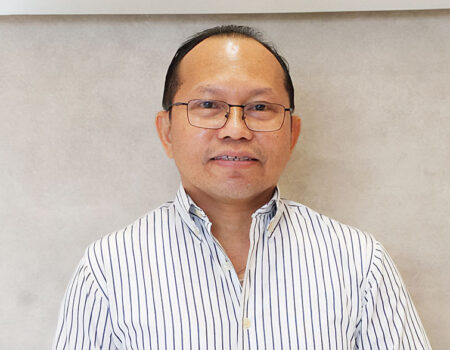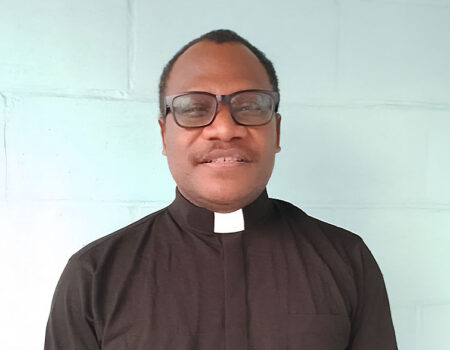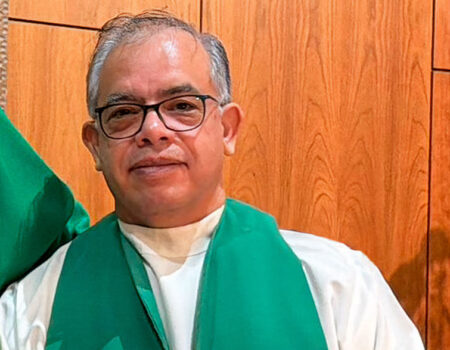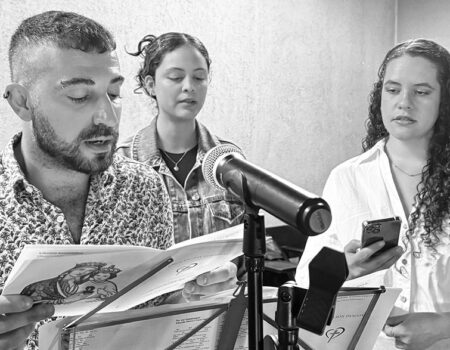CONTEXTUAL THEOLOGY OF INTERCULTURALITY FOR A REFOUNDED RELIGIOUS AND MISSIONARY LIFE
Theological study for the formation and mission of the Missionaries of the Sacred Heart
Tuesday October 18, 2022
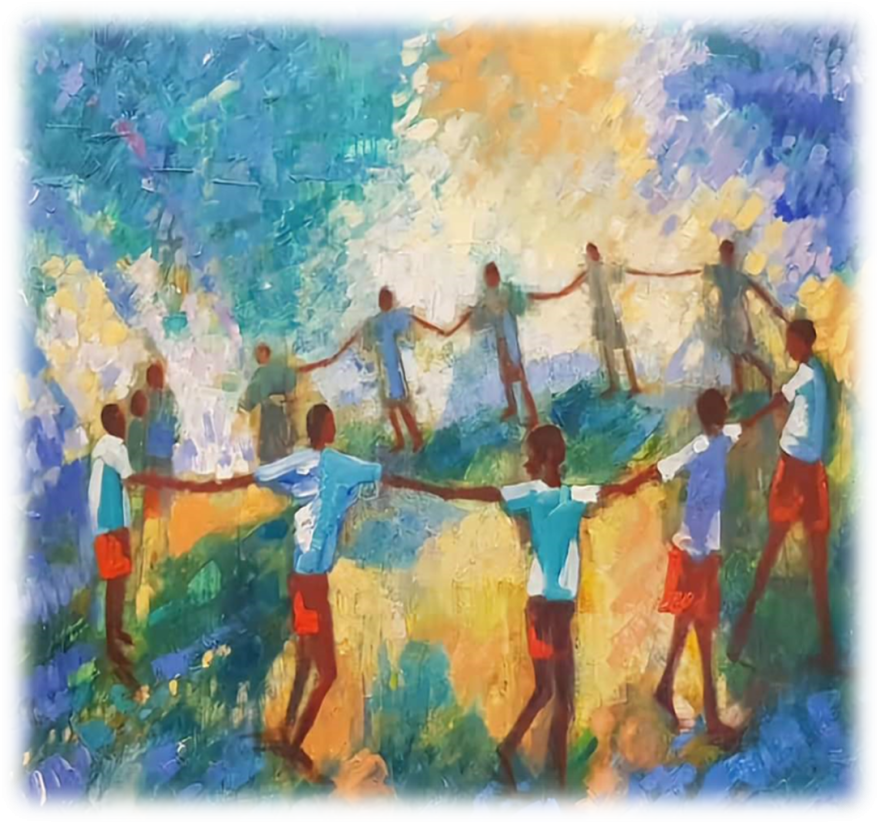
If we turn to the crucial issue of interculturality, it goes without saying that the Second Vatican Council turned the Church around. The Spirit was blowing, and Pope John XXIII led us down a path towards what the great Jesuit theologian Karl Rahner called a “Church-world”. For centuries, Catholic Christianity had been set in a European cultural mould that envisaged mission primarily “ad extra”, that is, “ad gentes”. But in 1962, when the bishops from all over the world met in Rome, the African, Asian and Latin American prelates took their place and showed a different face of the Church. Now the missionary was a guest of a local church to share the responsibility of witnessing to the coming of the Kingdom of God announced by Jesus.
In principle, religious life should be that prophetic group responsible for awakening and stimulating the wider Church so that it does not stray from evangelical and missionary radicalism. It should be, as John Baptist Metz said, “shock therapy by the Holy Spirit for the great Church”, so that it does not forget or abandon the radical following of Jesus.
The decree Perfectae caritatis called for the renewal of religious life. It clearly states that:
“The adapted renewal of religious life includes both the continuous return to the sources of all Christian life and to the original inspiration of the Institutes and, on the other hand, the correspondence of these to the new conditions of existence.” In truth, formation is an adequate environment in which this renewal of consecrated life must begin.
Today, the programme of MSC formation must take into account the various cultural themes, and go beyond multicultural formation to reach the ideal which is intercultural formation that takes its root from the intercultural Heart of Christ.
In this sense, MSC consecrated persons are invited to recognise the equality existing between the cultures of the members in order to avoid the complex of cultural superiority or inferiority, and that the Gospel be sown according to the Heart of Christ.
In a spirit of fidelity to our founding charism… in order to keep the dynamism of interculturality, we are invited to nurture and develop in our different entities an actively international, multicultural sense of shared missionary responsibility and vision of purpose, a common spirit of collaboration for the implementation of the universal mission of the whole Congregation and this, despite our limitations.
From this conviction, interculturality is not understood as an end in itself, but as a means for CSMs to create the conditions for living humanity to the full. In the context of consecrated life, Father Arturo SOSA sj makes the following statement:
« One temptation of consecrated life is to be satisfied with multiculturality as an expression of its universality. To be satisfied with only a good cohabitation between people of different cultures is to miss the opportunity to live the experience of catholicity within one’s own religious communities. On the other hand, multiculturality, understood as the opportunity to accept the challenge of enriching exchanges between cultures, leads to living interculturality as a contribution to the fully human universality that we call Catholicity. This simple description shows that interculturality is the reciprocal exchange between cultures that can lead to the transformation and enrichment of all those involved. »
For a better balance of MSC community life, it is advisable to find a common denominator that will make the community grow. MSC dialogue is a key element in this process. It allows for the understanding of expectations and favours listening to each other in a climate of respect and trust. Each member needs to be able to step outside of themselves in order to let go of any preconceived notions about others. To be able to establish new perspectives of reflection that will bring solutions that will open the path on which all must walk and advance together in mutual respect. The result of this dialogue is the fruitfulness of the MSC mission. It is in this perspective that interculturality will be realised by moving from tolerance of differences to appreciation and celebration of the cultural difference of the members of the community.

Plural humanity reconciled in Christ
The Gospels are unanimous in teaching that even on the cross, awaiting his imminent death, Jesus continued to desire a reconciled plural humanity. Hence the forcefulness of the Pauline appeal:
“For all of you, in Christ Jesus, are sons of God through faith. For all of you, whom baptism has united to Christ, have put on Christ; there is no longer Jew or Greek, there is no longer slave or free, there is no longer male and female, for you are all one in Christ Jesus” (Gal 3:26-28).
Following Paul, (the parallelism suits us), we should not, pastorally speaking, have European, American, Asian, African, Oceanian MSCs… if not planetary MSCs (of the whole of humanity): who live, share and work together regardless of ethnocultural terminologies, if not ubique terrarum.
The Spirit revealed to Father Jules Chevalier that the open side of Jesus was not a sign of failure in his life, but the victory of God’s infinite love over the suffering of humanity. Jules Chevalier expresses this clearly. The pierced Heart of Christ is the sign of God’s incarnate love for all humanity. This is why devotion to the Sacred Heart, as the Church understands it, is devotion to the love with which God has loved us in Jesus Christ (CS….). In this perspective, our love for God is justified by our love for our neighbour and the work of the whole (cf. 1 Jn 4:20). However, our love of neighbour in our context is not a love rooted in the multicultural[1], but an intercultural love[2].
Just because we live on earth with the practice of certain selfish cultures does not mean that we should feel separatist differences among ourselves. Such a reality would be a counter witness to the dynamics of our MSC consecration and faith.
Our MSC religious identity must transcend our identity markers, but without erasing or denying our cultural differences. Paul himself continues to present himself as a Jew (Rom 9:3; 11:1). And it is precisely on the basis of the foundational element of Jewish identity, the fatherhood of Abraham, that Paul invites us to transcend the boundaries between Jew and Gentile. Abraham was considered righteous, not because of his works, but because of his faith (cf. Gen 15:6, quoted in Gal 3:6 and Rom 4:3).
The MSC, through their conversion to Christ, gain a new status which is nothing less than that of sons of God. Therefore, they have become members of a new family. This new family, based on faith in Christ, is a common and equal heritage given to all members regardless of their nationality or region of origin, social status or language.
In fact, by becoming an MSC, everyone acquires a new identity. This is what Paul expresses to the Galatians when he says that they have ‘put on Christ’. Our greatest challenge is to be patient with ourselves, to be patient with others, and to be patient in our circumstances.
MSC reflects the international nature of the Congregation. In all the countries where the MSC are located or present, they work together as members of different nations. In a world divided by cultural, social and religious diversity, the work of an MSC is dedicated to encouraging people to open their hearts and share God’s love with each other. Hence our motto: “Loved everywhere is the Sacred Heart of Jesus!
Our world is changing very rapidly. In our time, religious life suffers from an exaggerated personalism that is deeply wounded by multiform divisions. It is a world that is so afraid of those who seem different that it wants to erect walls and barriers between people. It is in this world that the MSC charism calls those who want to live the Gospel values to build bridges, to foster dialogue and to show the way to collaboration and to work effectively together on a common task. It is in this world that MSCs are called to lead people to value all that is good and creative in the other person so that together we can better live out our common gospel mission.
The Christian faith is truly open to an intercultural way of life. In this sense, it connects people from different cultures in a “we” that is the fruit of each person’s conversion to a reality different from his or her culture of origin.
[1]Fraternité multiculturelle c’est accepter, dans une communauté religieuse, vivre avec quelqu’un d’une autre culture. Cependant, vivre à côté de, donne un sens totalement indifférent de ce qu’il (l’autre) fait ou de ce qu’il est et vit. C’est ignorer l’autre bien que vous formiez une communauté multiculturelle.
[2]Fraternité interculturelle c’est être et vivre avec l’autre. C’est partager la vie communautaire dans son sens religieux avec l’autre. L’amour interculturel est celui qui me rend préoccupant de la vie de celui qui vient d’une autre culture, et avec qui je forme la communauté. Ses joies et ses peines sont également miennes.
 This article is a summary of the thesis written by our brother
This article is a summary of the thesis written by our brother
François NDALI MOMBALA NGBOKO, MSC


